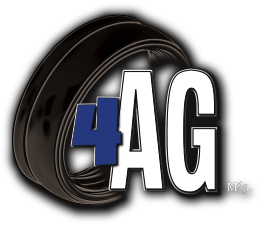The Thin Line between Manual and Industrial Cultivators
Cultivators are agricultural tools used to break up and loosen soil in preparation for planting. Someone can operate the machinery manually or with industrial power. Both manual and industrial cultivators have advantages and disadvantages and farmers must choose the right tool based on their needs. Read this blog to find out whether manual work is advantageous or its best to choose tools like cultivator gauge wheel to yield best results.
Manual Cultivators
Manual cultivators are operated by hand and are ideal for small-scale farming or home gardening. They are lightweight, portable and easy to use, making them popular among small-scale farmers and hobbyists. Here are some advantages and disadvantages of using manual cultivators:
Advantages of Manual Cultivators
Affordability: Manual cultivators are relatively inexpensive compared to industrial cultivators. They are an affordable option for small-scale farmers who cannot afford industrial cultivators.
Environmentally friendly: Manual cultivators do not produce harmful emissions, making them environmentally friendly. They are a good option for farmers concerned about their environmental impact.
Easy to use: Manual cultivators are easy to use and require minimal maintenance. They are a good option for novice farmers or gardeners who need to gain experience with heavy machinery.
Disadvantages of Manual Cultivators
Time-consuming: Manual cultivators are slower than industrial cultivators and require more time and effort to operate. They are not suitable for large-scale farming operations.
Limited power: Manual cultivators need more control and are unsuitable for heavy-duty tasks. They are only suitable for light cultivation work unlike the cultivator gauge wheel.
Requires physical effort: Manual cultivators require physical effort to operate, and they can be tiring to use for extended periods. They are not suitable for farmers with physical limitations.
Industrial Cultivators: Making Things Easier with the Cultivator Gauge Wheel
Industrial cultivators are powered by gasoline or electricity and are designed for heavy-duty tasks. They are suitable for large-scale farming operations and can cover more ground in less time than manual cultivators. Here are some advantages and disadvantages of using industrial cultivators:
Exploring Benefits of Industrial Cultivators
Power and speed: Industrial cultivators are powerful and fast, making them suitable for heavy-duty tasks. They can cover more ground in less time than manual cultivators.
Versatility: These cultivators come in various sizes and can be used for multiple cultivation tasks. They are suitable for small and large-scale farming operations.
Efficiency: They are more efficient than manual cultivators, requiring less physical effort. They are suitable for farmers who need to quickly cover a lot of ground.
Consistent Results: These can till the soil and plant crops with high accuracy and consistency, leading to more uniform crop growth and higher yields.
Time Savings: The cultivator gauge wheel in any industrial purpose can perform multiple tasks simultaneously, such as tilling, planting and fertilizing, saving farmers much time and labor compared to manual methods.
Improved Soil Health: Industrial cultivators have features such as GPS systems and precision sensors to help farmers manage soil health more effectively. This can lead to better soil fertility, reduced erosion and improved water retention.
Greater Precision: They can apply fertilizers, herbicides and pesticides with a high degree of precision, reducing the number of chemicals needed and minimizing the risk of crop damage.
Increased Crop Yields: They can increase crop yields by providing optimal crop growth conditions, reducing plant stress and protecting crops from pests and diseases.
Shortcomings of Industrial Cultivators
High Cost: Industrial cultivators are expensive machines like cultivator gauge wheel requiring significant investment in capital, fuel and maintenance. This can be a substantial financial burden for small-scale farmers who may need more resources to invest in these machines.
Environmental Impacts: The use of industrial cultivators can have significant negative impacts on the environment. The heavy machinery used in industrial cultivation can lead to soil compaction and erosion, decreasing soil health and productivity over time.
Get Qualified Machinery
Despite some shortcomings, industrial cultivators can yield better crops and also save a lot of time. If you are looking for heavy machineries for your cultivation, contact 4AG Manufacturing right away!

